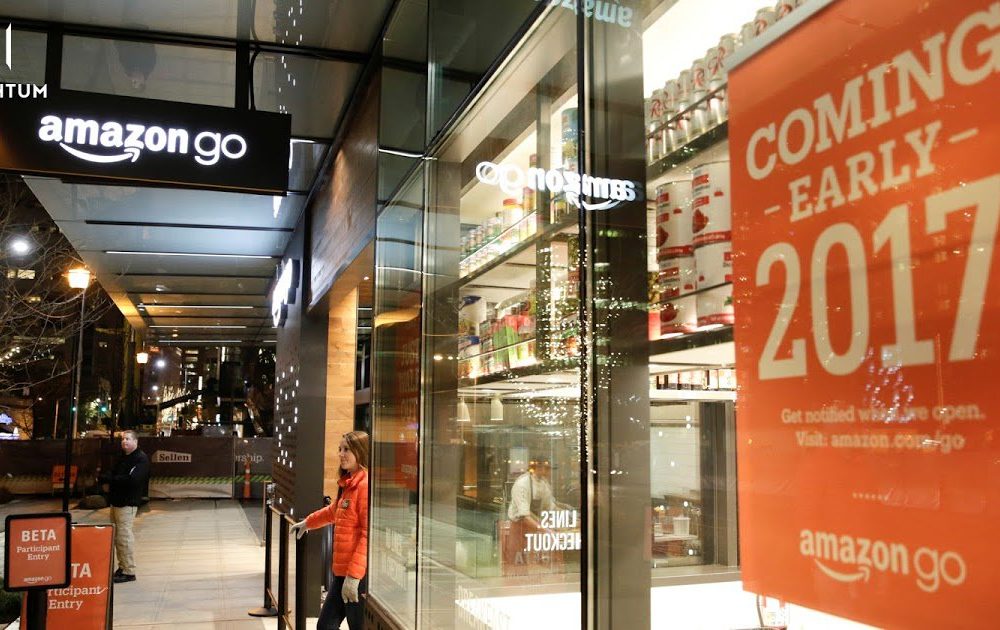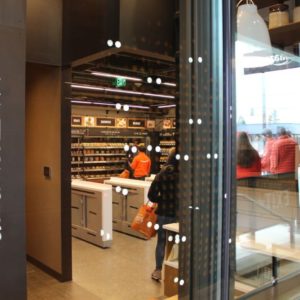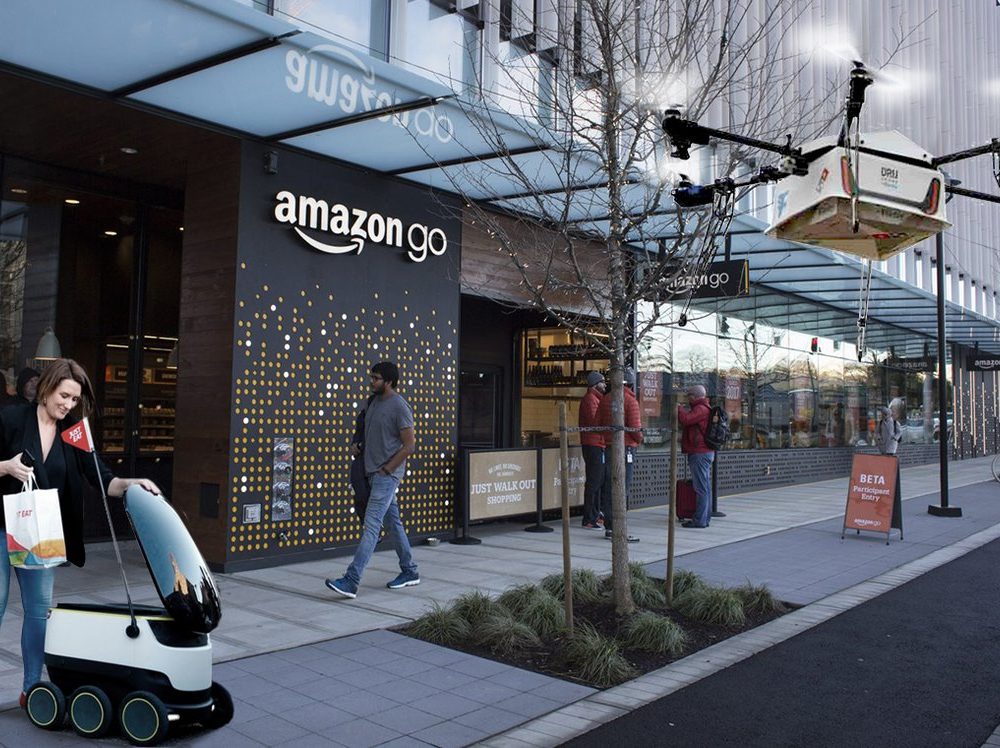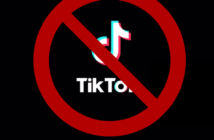- Even though, Currently, Amazon Go is open to Amazon employees only, it is planned that in the early 2017 the store will be open to the public. Source: The Momentum Twitter https://twitter.com/themomentumco/status/806162737931816962
- To enter the store customers have to use a mobile app that works as a virtual cart. Sensors located close to the entrance allow the customer to start and finish shopping in the store. Source: Wirde.jp Twitter https://twitter.com/wired_jp/status/806777954818633729
- Amazon Go looks like every other supermarket, and the only difference that makes it unique is the lack of cashiers. Source: WIRED.jp Twitter https://twitter.com/wired_jp/status/806777954818633729
By:Rafal Matuszczak
On Dec. 5, Amazon opened the world’s first-ever grocery store with no cashier lines. Amazon Go, which is the name of the company’s newest invention, is located in Seattle, and it is currently being tested. The store allows customers to walk in, collect groceries, and walk out without any interaction with a cashier.
Amazon’s official website indicates that in order to enter the store a customer needs to download the Amazon Go app. The mobile application takes care of adding the collected items to a virtual cart, calculating the price, and sending a receipt after the customer leaves the store. Not only will the technology recognize when a customer takes a product from a shelf but also it will clear the cart if the customer decides to put the item back.
The technologies used in the stores are similar to those used in self-driving cars, and they include computer vision, sensor fusion, and deep learning which stands for artificial intelligence, according to amazon.com.
The store does not include only groceries. In Amazon Go, people can also find ready-to-eat breakfasts, lunches, and dinner meals which, according to amazon.com, would allow a customer to save about 30 minutes that the person would have to spend on cooking the meals.
Nevertheless, the store is currently in its beta version, and it is not open to the general public yet. Amazon.com indicates that during the tests period only Amazon workers will be able to do shopping in Amazon Go. However, the company is planning to open the store for all customers in early 2017.
Some experts indicate that such kind of stores might bring many benefits, but there is also a risk that they will cause problems; a lot of testing still has to be done before stores, like Amazon Go, can be open to general public.
In an interview for wired.com, Brent Franson, CEO of Euclid Analytics, indicated that using mobile devices might help Amazon to better recognize the customers’ needs as the Wi-Fi mobile systems which help the smartphones to interact with items in Amazon Go could be used for tracking the clients while shopping. The information about the customers shopping habits could then be utilized in targeted advertising campaigns.
Nevertheless, Franson also notes that it will be very difficult for Amazon’s systems to achieve 100 percent accuracy, and sooner or later a customer will receive an item for free or will be charged for something that has not been purchased. Both cases are undesirable, and for this reason, a lot of tests still have to be conducted, according to wired.com.
Having a store without a cashier might lower the company’s costs of maintenance, and it might be convenient for people who do not have enough time to wait in lines. However, despite the benefits, there is a chance that some people will not like stores in which there isn’t anyone who could help the customers.
“Having a human cashier would be beneficial by having an in-person connection and experience which could prevent confusion and frustration. I believe that dealing with everything electronically can take away benefits like getting a straight forward answer from a person than getting directed to the next automated machine when you have a problem or simple question,” said Jennifer Litzen, a junior majoring in economics.
Some customers might also be concerned about the mistakes mentioned by Franson. Even if Amazon would make all of the systems work 100 percent accurately, it is possible that somebody will try to break the system and take advantage of the lack of the human interaction in the store.
“Being able to take an item off the shelf and walk out of the store now is considered shoplifting so for Amazon to change that would be hard because there could be ways to hack the system to continue shoplifting. I think the app could make mistakes by not charging certain items the right price,” added Litzen.
Nonetheless, with all the benefits that Amazon Go brings, the store might have a potential to become popular in the future. Phil Lempert, a food marketing expert, based in Los Angeles, indicates that the technology is amazing and Amazon Go could become very successful, especially, in regards to selling ready to eat meals, according to usatoday.com.
“I think the popularity would be low at first due to the uncertainty of how well the “grab and go” off the shelf would work out. If it does work without any problem then it could become pretty popular due to the advancement in technology,” said Litzen.








